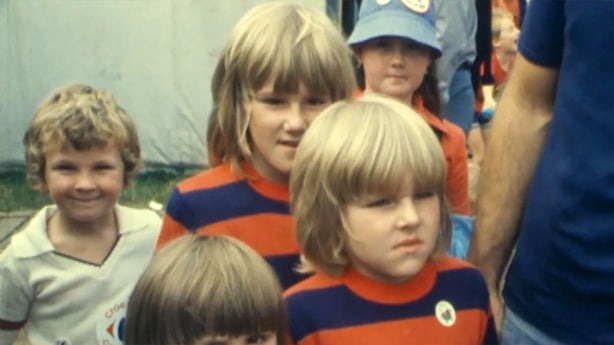What does the future hold for the language, culture and politics of Wales?
The future is bright at the Eisteddfod, a gathering of people with a common interest in the Welsh language and culture.
Wales has its national anthem and national flag but politically it is just a region of Britain. Yet, the Welsh language has given Wales a separate culture, a culture which has a national focus every summer at this festival.
About one fifth of the population of Wales speaks Welsh. Many of them gather at the Eisteddfod to demonstrate their interest in Welsh poetry, drama, dance and song. During the week long celebration, around 200,000 people will attend the Eisteddfod. It is a festival for all ages with entertainment in the form of traditional music to the latest in Welsh pop. Business and banking also have a presence at the festival demonstrating an inclusive approach to Welsh language speakers. The focus of the festival is very much on the preservation of the language. When the Welsh Secretary of State spoke at the festival, he was heckled by the Welsh Language Society over the future of Welsh language broadcasting.
Dafydd Iwan a language activist and promoter of Welsh popular culture is also a councillor for Welsh nationalist party Plaid Cymru. He is optimistic about the future of the Welsh language and its use as a political tool.
It's very good for the Welsh language that we have developed a modern pop culture in the Welsh language and using the Welsh language.
The Plaid Cymru party now has three MPs at Westminster leading a campaign for the devolution of power to a Welsh Assembly in Cardiff. Dafydd Elis-Thomas is a Plaid Cymru Party MP for Meirionnydd Nant Conwy. He believes that the Welsh culture has become politicised.
It is only by effective socialist planning policies that we can hope to develop a kind of society we want in Wales.
The Welsh Assembly is awaiting the results of a public referendum. In the meantime, the administration of Welsh affairs is being transferred from London to a Welsh office in Cardiff.
Ian Grist, Conservative MP for Cardiff, says that Wales is proud to be part of the United Kingdom. He recognises the need for institutions to be established in Wales to meet the needs of the country but working within the framework of the United Kingdom. He believes that Wales will always reject independence. The establishment of a Welsh assembly is a step towards strengthening the unity of the United Kingdom and not a means to break it up.
The economic powers will remain with central government.
The immediate priority for the Labour Party is to win the general election and hopes to do this by supporting devolution and winning the nationalist vote. Labour Party MP John Morris visited the Eisteddfod to voice the party's commitment to Wales.
The people of Wales will be able to determine their own future.
The Conservative Party rejects the idea of a Welsh Assembly. David Owen MP says that an assembly would be dangerous to the future unity of the United Kingdom.
The future of Welsh culture and politics is dependent on decisions made at EEC level as well as in London and Cardiff. Aneurin Hughes, European Civil Service, believes that in the medium term, the EEC could provide a representation for the regions of Europe and a forum for a new Welsh identity. He says that the EEC needs to be a representation of cultural interests as well as economic.
There's a growing awareness of regional needs.
At the Eisteddfod, the Labour government announced financial support for bi-lingual education in Wales. It is also likely that the Eisteddfod will receive funding from the EEC.
The future of Welsh language culture seems assured despite the political uncertainties surrounding devolution.
Latest research indicates an increasing use of the Welsh language among the under-10s and the Welsh language learners' tent was one of the busiest at the Eisteddfod. The language will remain at the forefront of Welsh politics.

This episode of 'PM' was broadcast on 15 August 1978. The reporter is Forbes McFall.

























